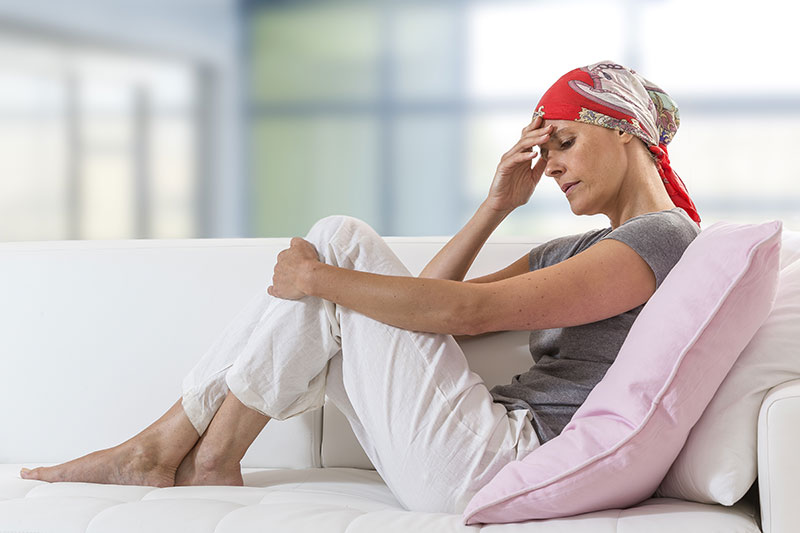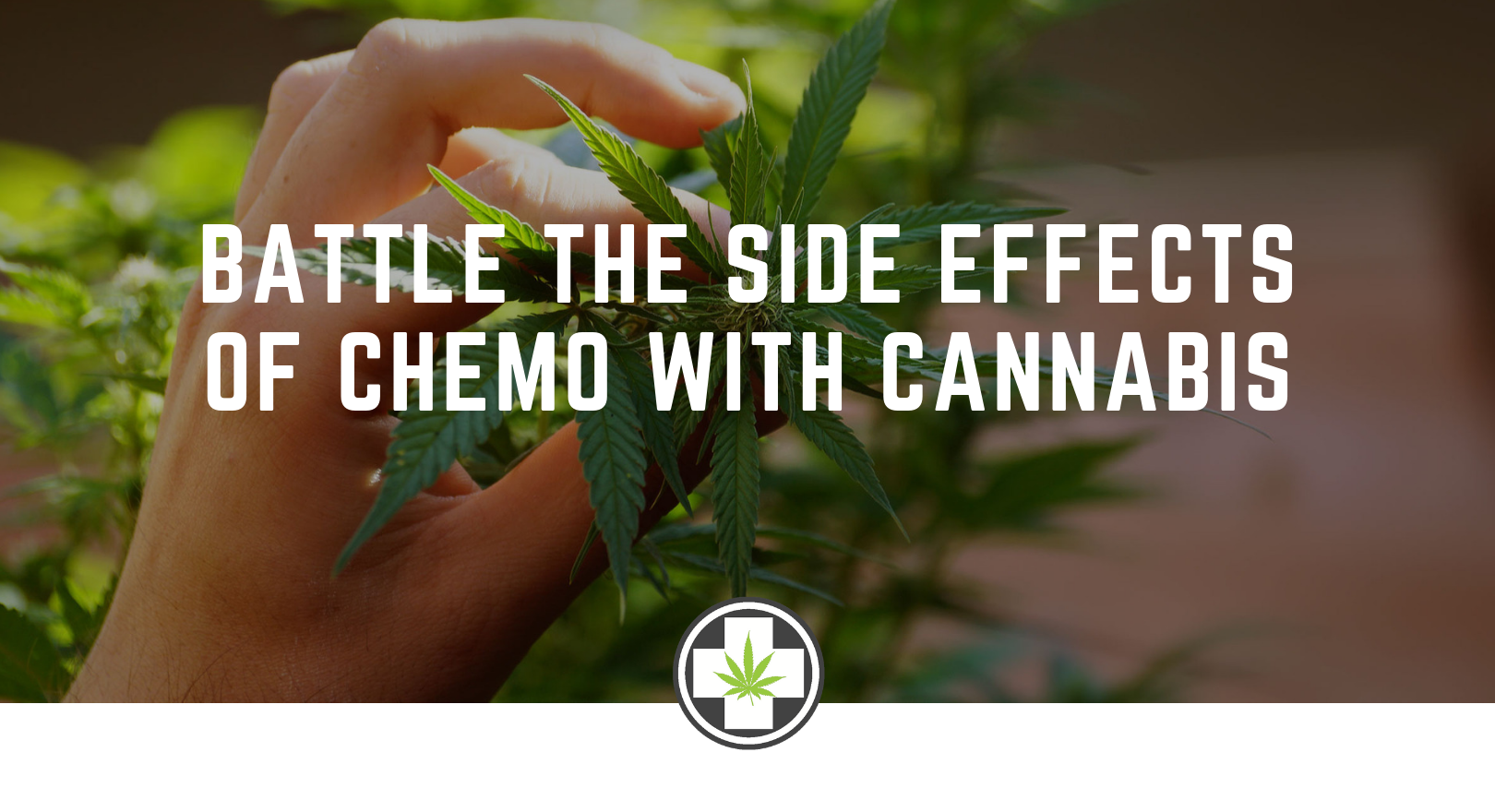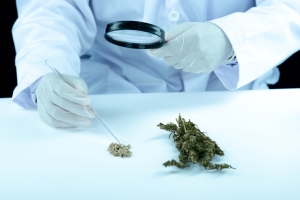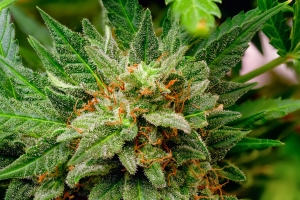Battle The Side Effects of Chemo With Cannabis
Chemotherapy is one of the most widely used treatments for cancer. This treatment uses dangerous chemicals that destroy cancerous cells or to prevent them from spreading.
While chemotherapy is one of the most effective and widely used treatments for cancer, it has side-effects that most patients find difficult to endure. Some side effects of chemotherapy can include the following:
- Nausea and vomiting: The most frequently experienced side-effect of chemotherapy affecting more than 70% of patients.
- Fatigue: Fatigue is a common side-effect and may be present most of the time or only after certain activities.
- Loss of appetite: Both chemotherapy and cancer itself can cause a loss of appetite. The severity of this side-effect depends on the type of cancer and treatment.
- Cognitive and mental health problems: As many as 75% of chemotherapy. patients experience problems with attention, thinking, and short-term memory loss. Anxiety and depression are also very common.
- Nerve pain: Certain kinds of chemotherapy may result in peripheral neuropathy, a condition which causes an intense burning sensation in the hands and feet as well as a loss of sensation.
Doctors who treat patients with cancer may write several prescriptions in addition to chemotherapy to combat these side-effects. However, these additional medications can come with additional side-effects.

How Cannabis Can Help
There is hope, however. Many patients find relief from chemotherapy side effects with just one medication: cannabis. The American Cancer Society has stated that there is evidence that cannabis helps with the side-effects of chemotherapy and even the treatment of cancer itself. However, the organization points out that more studies are needed and supports the efforts of those trying to complete them.
One survey found that 43% of patients with a cancer diagnosis used cannabis. Another survey conducted by Harvard Medical School (before cannabis was first made legal for medical use in California) found that 44% of oncologists would recommend cannabis as a therapy for their patients. A 2013 survey found 3 out of 4 clinicians would recommend the use of cannabis to a hypothetical cancer patient.
One study has shown that cannabis combined with chemotherapy prolonged life and even inhibited the proliferation of cancer cells in mice with pancreatic cancer, leading to a tripling of the survival rate.
Here’s how cannabis helps directly with the side effects of chemotherapy:
- Nausea and vomiting: Several studies have shown evidence that cannabis may surpass conventional methods when it comes to treating nausea and vomiting. These symptoms during chemotherapy have shown cannabinoids as being successful as a treatment. A good strain to try for nausea that also has uplifting effects is Durban Poison.
- Fatigue: There have been few studies done on how cannabis can help treat fatigue, but anecdotal evidence from patients in legal states suffering from chronic fatigue syndrome claim cannabis helped treat their symptoms. Green Crack is a great strain to use to try this.
- Loss of appetite: There have been a few studies done on how cannabis can increase appetite, especially for patients with HIV/AIDS and cancer. One strain to try if you need an appetite boost: Afghan Kush.
- Focus: Many patients going through chemotherapy report a symptom that they call “chemo brain” which affects their ability to focus. One strain to help with this side-effect is Blueberry Headband.
- Depression: One of the major side-effects of both cancer and chemotherapy is depression. Fortunately, studies show that cannabis can help with depression. One strain you might want to try: Pineapple Express.
- Anxiety: A study showed that cannabis can help resolve anxiety in the short term, however, long-term analysis has yet to be done. A strain to try for anxiety relief: Northern Lights.
- Nerve pain: Studies indicate that cannabis can help with neuropathic pain, due to its effects on the activity in the amygdala. One strain to try for the treatment of pain: Purple Kush.

How To Gain Access To Cannabis
The ability of a doctor to recommend cannabis is protected by the First Amendment and has been upheld by the Supreme Court. However, there may be things that your doctor can and cannot do depending on state law. In states where cannabis is legalized for medical use, like Florida, a doctor may recommend that a patient use cannabis to help with chemotherapy, though they may not prescribe or provide access to cannabis directly.
Along with surgery and radiation, chemotherapy is one of the most widely accepted and used treatments for cancer. For many cancer patients, this means enduring side-effects that some testify is worse than cancer itself. In both legal states and states who have yet to legalize cannabis as a medical treatment, patients have been turning to the plant for relief. More medical research needs to be conducted, but current research and anecdotal evidence point to cannabis as a potential medicine to use along with chemotherapy in the fight against cancer.
If you’re facing chemotherapy and you live in a state where cannabis is legalized, like Florida, you owe it to your health to investigate this new method of treatment.






